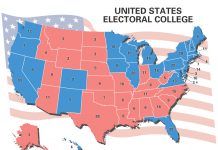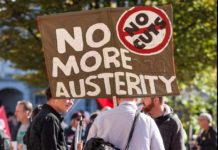Productive vs Non-productive. I use these terms constantly, mostly from an economics perspective. They appear in my writings frequently. But the economic definition is quite a bit different than the colloquial definition. To avoid making anyone inadvertently angry at me (I’ll never solve those that are INTENTIONALLY angry at me), I thought it might be time to explicitly define the differences. Let’s dig.
From an economics perspective, productive people are those that ‘produce’. They work. Their efforts, mentally and physically, produce something others may buy. Of course, their work fits into the standard Supply/Demand curve: If the buyer values the work more than the price, the buyer buys it. If the price is higher than the value assigned by the buyer, the purchase is not made. The buyer may be an employer, or it may be the buyer of a finished product or service.
Solely from an economics perspective, non-productive people are everyone else other than the productive. It makes no value judgement as to WHY someone is non-productive. That person may be a child; it may be a retiree; it may be someone disabled; it may be a full-time student; it may be someone in between jobs (productivity is as of a given point in time). It may be someone that is independently wealthy, so a job is unnecessary. The only commonality: this type of person does not produce a product or service, at that particular time.
Now for the social (non-economic) definitions. These are the ones that can get people a bit hotter under the collar, as there are effort assumptions and expectations. There are value judgments galore here—lazy vs not, handicapped (and the various definitions of THAT) vs able, etc. I have a tendency to group non-productive into two categories: lazy vs unable—but that is just ME. I think society as a whole gladly supports the unable—fully handicapped (mentally and physically), young children, elderly infirm, those on true disability, those in chronic pain, etc. Where the anger rises is where the line is drawn between lazy and unable. Is someone addicted to alcohol or drugs unable? Is a physically fit person who simply doesn’t understand how to look for, find, or keep a job, unable? Do we expect slightly handicapped people to work? The variations are endless. Note that this is in no way a dig on those that are ill or injured through no fault of their own. One does not intentionally contract a disease, just as many victims of bad fortune (think car wrecks) had no say in the misfortune.
I’ve seen folks try to make the case for taxpayer vs tax receiver, but that opens up some interesting cans of worms! Is a Defense contractor a receiver, as the company survives on taxpayer funds? Same case for politicians and military, although the military perform an obvious service for their cash. Now you can see why I avoid that flavor of definition.
I have been accused of cold-heartedness more than once. But I am a firm believer in self-improvement, and that most (not all) people are a result of their personal decision-making. That includes things like effort, education, planning, even the willingness to relocate to better job markets. I think that economic assistance, be it Welfare or unemployment compensation, should be short-term for the overwhelming majority of folks on it. The exceptions to that are pretty obvious—see the ‘unable’ list above. Most everyone else SHOULD be as productive as possible. The COVID-19 based unemployment is an entirely different situation, IMHO. Through no fault of their own, otherwise hard-working folk had their jobs END for several months. And the innocent businesses that were destroyed via the recent rioting? The business owners had nothing to do with the destruction. See? My cold-heartedness does have limits!
So, if you read my stuff, and see productive vs non-productive, you may have a better insight into my meaning. But I’d like to extend these definitions to current events, especially regarding riots, Antifa, and BLM.
Peaceful protests are as American as apple pie. They are even protected behavior the US Constitution: the right to ‘peaceably assemble’ is enshrined in the First Amendment. But when the protest loses its ‘peaceful’ connotation—looting, property destruction, violence, arson, intimidation of innocent bystanders (the legal definition of ‘assault’), that activity becomes a criminal event. Regardless of the incentive, stimulus, or reasoning behind the protests, crossing the violence line ends any Constitutional protections. Now, some Liberal Mayors and Governors are implementing policies that ease the downside of the rioters: no bail releases, ordering police to stand down in the first place, failure to request the National Guard to quell the violence, dropping charges entirely for the rioters, have all been in play lately. The abdication of responsibility of governance to protect the people and property they were elected to serve is astounding.
But let’s get back to the productive/unproductive paradigm. Antifa and BLM folks have been at the heart of the latest outbreaks of rioting. BLM has collected literally billions of dollars from huge corporations sympathetic to their cause (whether they are doing so to avoid the nasty ‘racist’ label is between the boards of directors and their own finance departments). To date, BLM has not used these funds to productive usage, other than to finance more rioters. I cannot point to a single productive thing that either of these groups have accomplished over the period of the riots. In fact, they are DEstructive, rather than CONstructive. The rebuilding of destroyed businesses is an incredible, daunting financial burden. Some will likely not even attempt the rebuild, costing the local economies tax dollars and jobs. Those that do rebuild may choose to do so elsewhere than their original locations. There are possible construction jobs that may be filled short-term in the rebuilding, but the net effect is negligible. Google Bastiat’s ‘Broken Window’ fallacy. The opportunity cost of rebuilding A prevents the owner or business the ability to buy B, or have profit B. I am sure there are anarchists that think these groups’ approaches are worthwhile, maybe even usher in some desirable political change, but from a purely economic standpoint, they are unmitigated failures. Note that most wars fall into this same category: yes, military folk get paid, and military hardware companies benefit from war—but that is the pure definition of that ‘opportunity cost’ mentioned just now. Whatever could’ve been done with those spent military funds simply cannot be done. As UNproductive as possible.
Welcome!Log into your account
























